China in IOR: ‘peaceful rise’ no more
China has expanded its presence in the Indian Ocean Region. President Xi Jinping has abandoned Deng Xiaoping’s conciliatory posture for an aggressive, money-fuelled search for super power status
 Courtesy: Western Naval Command
Courtesy: Western Naval Command
China has expanded its presence in the Indian Ocean Region. President Xi Jinping has abandoned Deng Xiaoping’s conciliatory posture for an aggressive, money-fuelled search for super power status
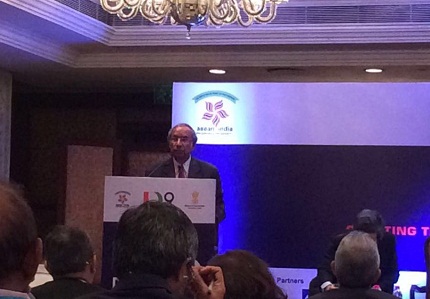 Courtesy: Arjun Chawla
Courtesy: Arjun Chawla
This speech was delivered by Rajiv Bhatia, Distinguished Fellow, Foreign Policy Studies, Gateway House, at the Delhi Dialogue 9, for the session on Regional Geopolitics: Great Power Politics in Asia -Pacific in Delhi on 4 July
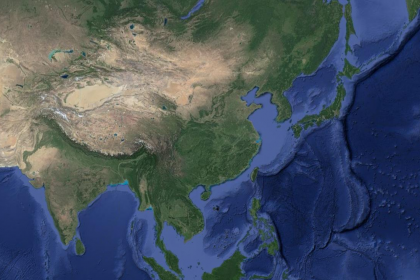 Courtesy: Google Maps
Courtesy: Google Maps
Hopes of a close partnership between the U.S. and India, as expressed at the Modi-Trump Summit, will have repercussions on East Asia. Will the region see peace or exacerbated conflict between China and all the nations opposed to its domination?
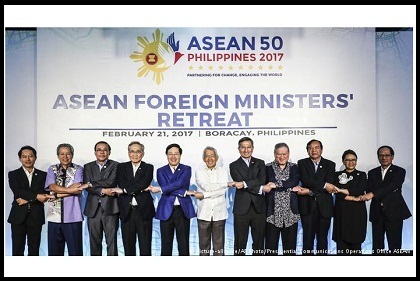 Courtesy: Deutsche Welle
Courtesy: Deutsche Welle
This regional grouping of 10 nations, which observes its golden jubilee year in 2017, has come a long way from the Cold War era when it was founded, making a significant contribution to peace, security and prosperity. Now, its future prospects and “centrality” look uncertain amidst the region’s changing geopolitics
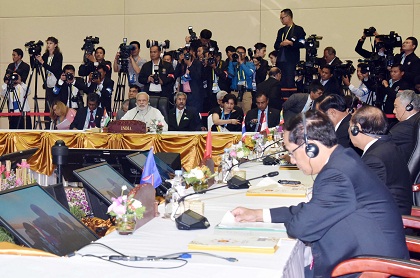 Courtesy: MEA/flickr
Courtesy: MEA/flickr
The year 2017 may change some equations in the East Asian region. Will the near parity that the U.S. and China currently share turn into a keener contest? Will strained relations between India and China persist? Donald Trump’s election as the next U.S. president casts the spotlight squarely on these inter-state relationships
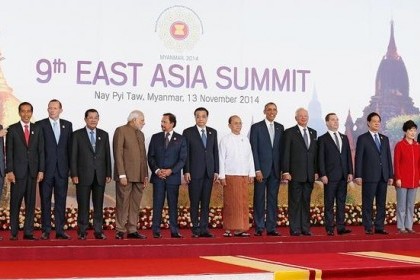 Courtesy: Russian Government
Courtesy: Russian Government
At a time when New Delhi is beginning to not just ‘Look East’ but also ‘Act East’, and when parallel integrative processes are underway globally, including the ASEAN-led process, the incipient China-led process and the U.S.-led TTP, India and ASEAN could together produce a brilliant new era of Asian integration
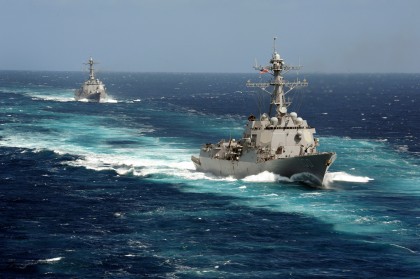 Courtesy: U.S. Navy / Wikipedia
Courtesy: U.S. Navy / Wikipedia
Philippine President Rodrigo Duterte has sought to sever ties with the United States, a declaration that has elicited much skepticism. The West Pacific is in for some realigning of relationships if he makes good on this threat.
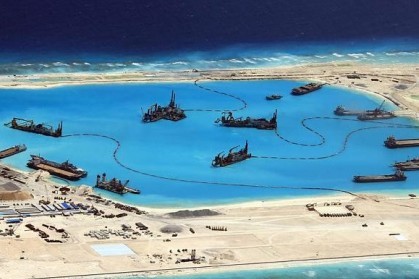 Courtesy: EPA
Courtesy: EPA
The implementation of the award by the Permanent Court of Arbitration in the Hague, on the interpretation of the UNCLOS in a case that pitted the Philippines against China in a dispute over the South China Sea is going to be a test for the primacy of international law. This speech was originally made at Christ University, Bengaluru on 27 September, as part of a 'National Seminar on the Formulation of Treaties'.
 Courtesy: Flickr / MEA India
Courtesy: Flickr / MEA India
India’s East Asia policy has been a bedrock of the country’s foreign policy, and the Modi government has deepened ties with ASEAN and extra-ASEAN powers in a significant way. As India turns 70, it is worth assessing the few key bilaterals that will now become more important for regional security and prosperity.
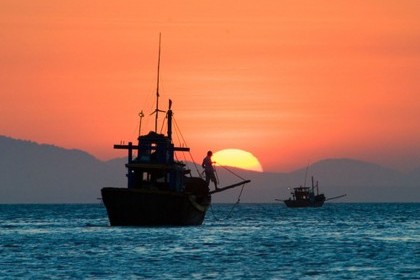 Courtesy: Flickr/Times Asi
Courtesy: Flickr/Times Asi
China's refusal to accept the ruling of The Hague greatly harms its international reputation and will fuel regional concerns about China's rise. Nationalist sentiments stirred up by a sustained media campaign heighten the risk of a confrontation, but there is also a possibility for the Philippines to use its new leverage to its advantage through new negotiations.